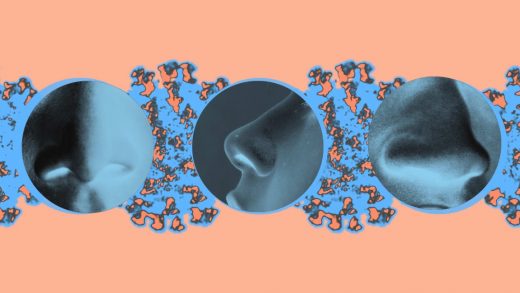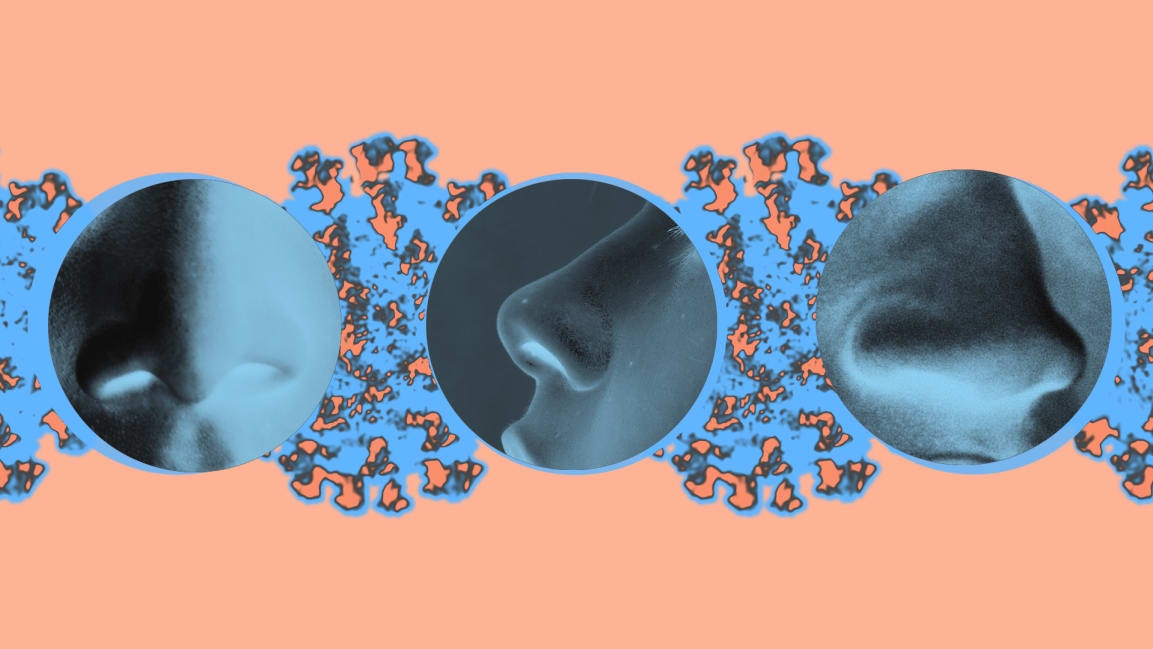Why does COVID make us lose our sense of smell? A new study has answers
One of the more notorious symptoms of COVID-19 is the loss of taste and smell. There are varying estimates on just how many tongues and noses went out of business, but one study shows that as many as 1.6 million Americans lost their senses. Now a new study from researchers at Columbia University and New York University Langone Health, published in the journal Cell, finds that the culprit of this olfactory dysfunction may be our immune response to COVID-19. The new insight may help our understanding of how to treat long COVID.
Previous research hypothesized that COVID-19 was infecting the receptors that send information about smell to the brain. “We took a close look at that and that definitely turned out not to be true,” says NYU Langone Health’s virologist Benjamin tenOever, one of the authors of the study. In tandem with researchers from Columbia University, who had studied autopsies of patients with COVID-19, tenOver conducted tests using hamsters to answer the question: Why do you lose your sense of smell when you get COVID? What they found is that SARS-COV-2 infects cells that support neurons in the olfactory system, called sustentacular cells. As those cells die from infection, they send out a massive amount of inflammatory molecules, also known as cytokines. “And those signals are basically pinging the olfactory neurons,” says tenOever.
What ultimately shuts down our ability to smell, he says, is the sheer amount of signaling. It overwhelms the receptors for those neurons, as well as the system that sends messages on behalf of those neurons. “The cells are there, but all of their constituents that make them work are all down for like three or four days,” he says. For most people (and hamsters), it can take two weeks for this inflammation to go down and for the body to return to a baseline state.
In another study that has yet to be accepted, tenOver and his colleagues looked at where else this effect might be happening in the brain. They found that the same inflammation that affects the olfactory system also radiates deeper in the brain. That may explain the neurological issues, like brain fog, headaches, delirium, and problems sleeping that have also been associated with COVID-19. But it doesn’t explain why these issues sometimes persist long after the virus has been evacuated.
“Our neuronal system is designed to like learn and remember things,” says tenOever. Where human bodies are always trying to return to a baseline state, even when some sort of change knocks things out of whack, our brains are primed to learn and adapt. “So constant signaling that doesn’t go away eventually—for lack of a better a word—gets remembered,” he says.
That sounds scary, but knowing that sustained inflammation is leading to neurological issues (rather than virus) may actually provide researchers, and ultimately doctors, with the information they need to understand how to treat long COVID. “The real value here is that, it would suggest that long COVID is probably best treated by just low-dose steroids that can cross the blood-brain barrier well; that tell your brain to go back down to baseline, and all will be well,” says tenOever. “And those are the kind of studies we’re doing now.”
(36)



